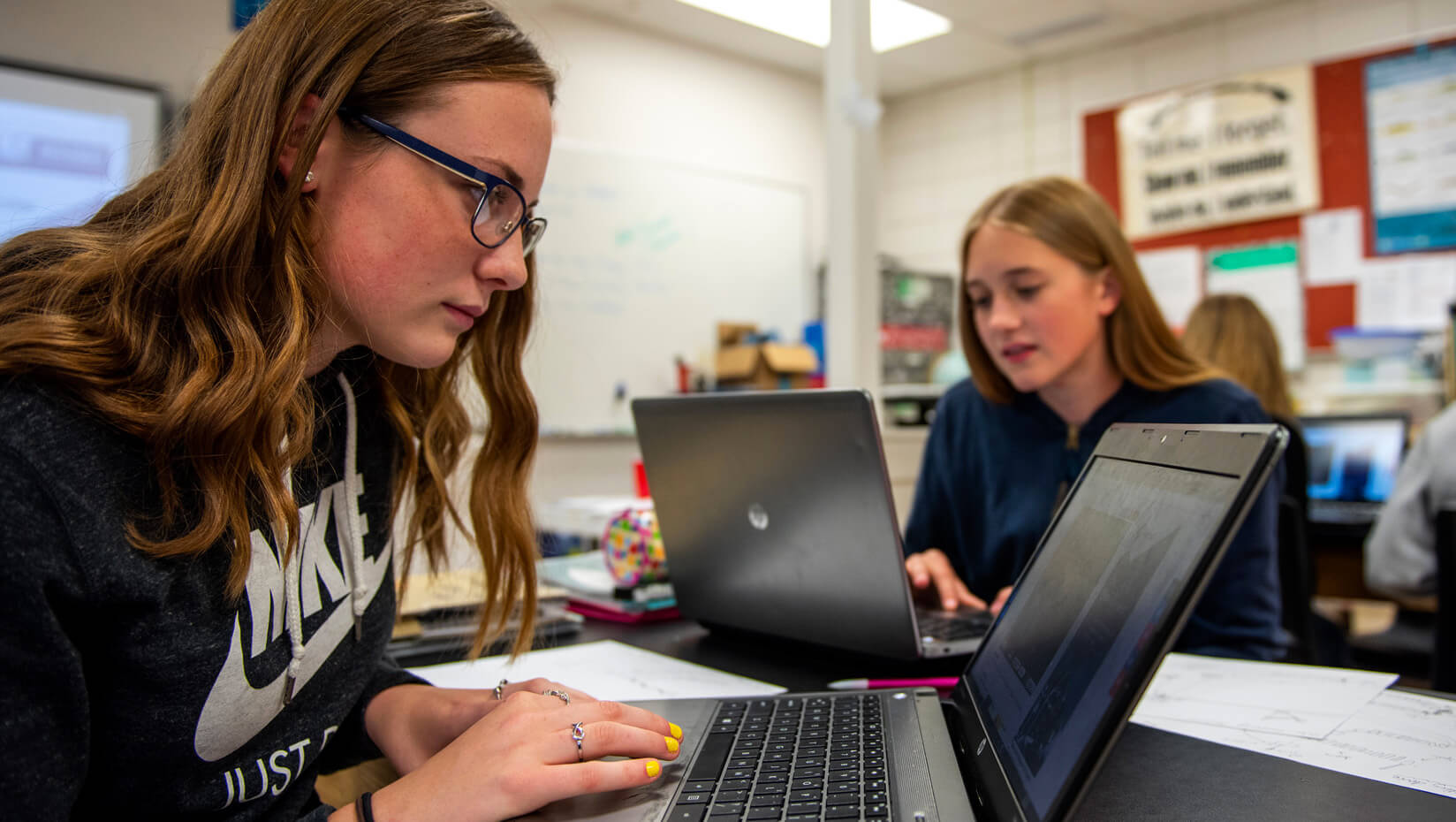
RiSE Center, educators to enhance computer science education, develop student skills for 21st-century careers
Thirty teachers from 10 Maine schools will team with the University of Maine to enhance middle school computer science education statewide and develop student computational skills needed for 21st-century jobs.
A $1.25 million National Science Foundation grant to the Maine Center for Research in STEM Education (RiSE Center) at the University of Maine will fund an exploratory study in which collaborative teams will develop and test activities that integrate computer science into middle school science instruction.
“This is an exciting project because it brings classroom teachers together with University of Maine education researchers and computer scientists to develop engaging, classroom-based strategies to teach core science and computer science concepts and skills,” says Susan McKay, a UMaine professor of physics and founding director of the RiSE Center.
“Our goal is to develop and study a model that will help Maine schools integrate computer science into science instruction to enhance student learning of both subjects. The types of collaborative learning through relevant, real-world applications that we will foster through this grant hold promise for increasing the knowledge and enthusiasm of all students for STEM, and for attracting a broader group of students to these fields.”
The project will take place through the Maine STEM Partnership — a statewide education improvement community that provides professional learning opportunities for educators.
The project is a response to the Maine Computer Science Task Force’s recommendation to expand computer science instruction at the middle-school level statewide.
The task force report noted that while computer science courses are offered in schools in all 16 counties of Maine, in both rural and urban communities, “Maine students do not have equal access to computer science education.”
A national census by Code.org that included 203 Maine schools indicated that 30 percent of K–12 Maine schools offer computer science education but that “Maine students are missing out on essential computational skills which are required for success in 21st-century jobs.”
The task force reported 71 percent of new STEM jobs are in computing occupations, and that computer science “is a part of every industry including health care, manufacturing, information technology, and a variety of other essential Maine industries.”
McKay is principal investigator of the project titled “Integrating Computing into Science Teaching and Learning in Grades 6–8: A Diverse Partnership to Develop an Evidence-Guided Model to Serve Rural Communities.”
Others educators leading the study are: Mitchell Bruce, UMaine chemistry professor and RiSE Center member; Jim Fratini, Hermon Middle School teacher; Sara Lindsay, UMaine marine sciences associate professor and RiSE Center member; and Harlan Onsrud, UMaine professor of spatial informatics.
In the last eight years, the RiSE Center has secured grants totaling more than $19 million to work with Maine educators to infuse classrooms with research-supported practices.
Contact: Beth Staples, 207.581.3777
